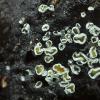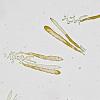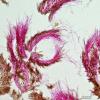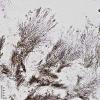
28-02-2026 14:43
A new refrence desired :Svanidze, T.V. (1984) Novy

01-03-2026 18:46
 Robin Isaksson
Robin Isaksson
Hi! This species i se from time to time in the

27-02-2026 17:51
 Michel Hairaud
Michel Hairaud
Bonjour,ô Quelqu'un peut il me donner un conseil p

27-02-2026 16:17
 Mathias Hass
Mathias Hass
Hi, Found this on Betula, rather fresh fallen twi

01-03-2026 18:02
 Francois Guay
Francois Guay
I found this mystery Helotiales on an incubated le

01-03-2026 14:10
 Antonio Couceiro
Antonio Couceiro
Hola, me gustaria conocer opiniones sobre este tem
Lachnum aff patulum ?
Miguel ûngel Ribes,
15-08-2008 01:46
 The last one today
The last one todayOn the bark of a live "ViûÝatigo" (Persea indica), in a laurisilva forest. No more than 2 mm diameter, inside yellow-grenish and white hairs. Asci 8 spores, biseriated, amiloid, with croziers. Paraphysis filiform, not enlarged at the apex and longer than asci. Cilindrical and not septated spores. Hairs filiform, not enlarged at the apex, septated and with granular surface.
Sporal measure (1000x, in water, fresh material)
5.6 [7.6 ; 8.9] 11 x 1.8 [2.1 ; 2.3] 2.7
Q = 2.4 [3.4 ; 4.1] 5.2 ; N = 17 ; C = 95%
Me = 8.28 x 2.22 ; Qe = 3.77
Thank you
Miguel ûngel Ribes,
15-08-2008 01:48
Miguel ûngel Ribes,
15-08-2008 01:50
Hans-Otto Baral,
15-08-2008 15:35

Re:Lachnum aff patulum ?
Its Proliferodiscus pulveraceus. Wonderful how you photographed the croziers! This species may sometimes also be without croziers. A good character is the reaction in KOH of the ectal excipulum (also base of hairs): turning violet!
The variable arrangement of the spores inside the asci is only seen in dead asci. In living asci they are always biseriate.
Are your finds all from Macaronesia? Which island?
Zotto
The variable arrangement of the spores inside the asci is only seen in dead asci. In living asci they are always biseriate.
Are your finds all from Macaronesia? Which island?
Zotto
Miguel ûngel Ribes,
16-08-2008 12:54

Re:Lachnum aff patulum ?
Yes, all of them are from Macaronesia, from Tenerife: Stictis and Proliferodiscus pulveraceus from "laurisilva" forest, and Propolis aff viridis from eucaliptus forest.
Thank you for "Proliferodiscus pulveraceus", I had never thought in this species.
Thank you for "Proliferodiscus pulveraceus", I had never thought in this species.





